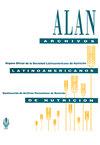高危新生儿出生第一年的发病情况
IF 0.3
4区 医学
Q4 NUTRITION & DIETETICS
引用次数: 0
摘要
引言:对极早产新生儿的护理为这些儿童的生存带来了重要成果。目的:了解高危新生儿出生后第一年的发病情况。材料和方法:这是在米纳斯吉拉斯州北部高危新生儿随访诊所进行的一项探索性研究。数据收集涉及2014年3月至2015年4月期间的录取情况。该仪器包括特征:人口统计学、社会学、妊娠和分娩条件、产后并发症以及出生第一年监测的儿童健康状况。进行描述性统计分析和齐方检验,假设显著性水平为5%,以比较按体重范围划分的疾病分布。结果:共有282名新生儿参与了这项研究,其中53.9%为男性。在这些母亲中,58.2%是经产妇,35.8%是高血压产妇。关于出生体重,59.6%的受监测新生儿体重低于1500克。在生命的第一年发现的主要疾病是神经-心理-运动发育迟缓、上呼吸道感染、神经系统疾病和慢性呼吸系统疾病。在出生体重范围内,神经-心理-运动发育迟缓(p<0.001)、神经并发症(p=0.008)和腹泻发作(p=0.047)的差异具有统计学意义。结论:高危早产儿的门诊护理有助于识别和预防该人群的复发性疾病。本文章由计算机程序翻译,如有差异,请以英文原文为准。
Perfil de morbidade no primeiro ano de vida entre recém-nascidos de alto risco
Introduction: Care for extremely premature newborns has provided important results in the survival of these children. Objective: To characterize the morbidity profile in the first year of life among high-risk newborns. Materials and Method: This is an exploratory research carried out at the follow-up clinic for high-risk newborns in the north of Minas Gerais. Data collection referred to admissions in the period from March 2014 to April 2015. The instrument included characteristics: demographic, social, pregnancy and delivery conditions, postpartum complications and health conditions of children monitored during the first year of life. Descriptive statistical analysis and the chisquare test were performed, assuming a significance level of 5% to compare the distribution of morbidities by weight range. Results: A total of 282 newborns participated in this study, 53.9% of whom were male. Among the mothers, 58.2% were multiparous and 35.8% were hypertensive. Regarding birth weight, 59.6% of newborns monitored weighed less than 1500 grams. The main morbidities identified in the first year of life were delayed neuro-psycho-motor development, upper airway infections, neurological disorders and chronic respiratory conditions. Statistically significant differences were recorded for delayed neuro-psycho-motor development (p<0.001), neurological complications (p=0.008) and episodes of diarrhea (p=0.047), between birth weight ranges. Conclusion: Outpatient care for high-risk premature newborns contributes to the identification and prevention of recurrent diseases in this population.
求助全文
通过发布文献求助,成功后即可免费获取论文全文。
去求助
来源期刊
CiteScore
0.50
自引率
0.00%
发文量
31
期刊介绍:
Archivos Latinoamericanos de Nutrición (ALAN) is the official publication of the Sociedad Latinoamericana de Nutición (SLAN), for the dissemination of knowledge in the fields of food and nutrition, principally throughout the American Hemisphere. Articles in Spanish, English, Portuguese and French are accepted, both from the Society members and from nonmembers, in the following categories: 1. General articles (critical scientific reviews); 2. Research articles (originals); 3. Papers in applied nutrition (analytical results from intervention programs and discussion of reconmendations of practical application), and 4. Letters to Editor (short comments of general interest or about scientific facts and results previously published in Archives).

 求助内容:
求助内容: 应助结果提醒方式:
应助结果提醒方式:


